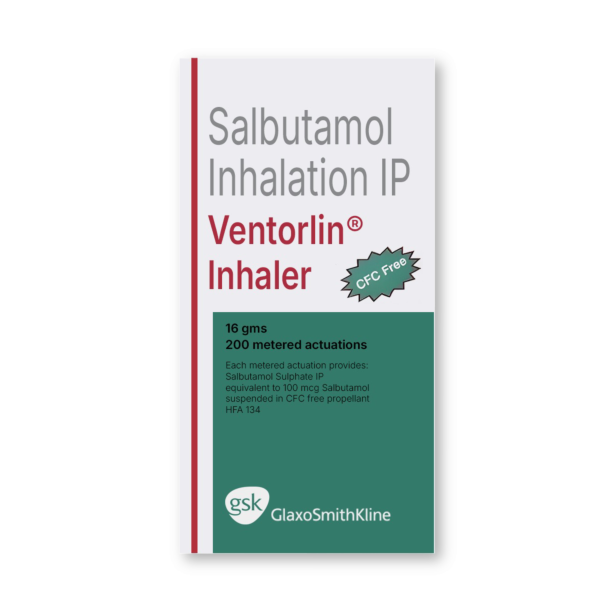Asthma is a common long-term disorder that affects the airways, the tubes that pass air in and out of the lungs. Asthma causes your airways to become more sensitive, inflamed, narrowed, and packed with sticky mucus, making breathing difficult. This can result in symptoms like wheezing, coughing, chest discomfort, or shortness of breath.
While the underlying cause of Asthma is unknown, several factors have been associated to an increased risk. These can range from a family history of Asthma or allergies to exposure to smoking or air pollution. Everyone with Asthma has a unique combination of triggers, but understanding what causes Asthma is the first step toward treating it and breathing easier.
Continue reading to know what are the five causes of Asthma, and how to manage the condition.
Find what causes Asthma
The underlying causes of Asthma are unknown; however, several factors have been found to be associated with the condition. These include genetic, environmental, lifestyle, medical, and occupational factors.
Let’s see these factors in detail.
Save up to 90% on your medicine bills

Aerocort Inhaler 50 mcg + 50 mcg

Bolstran 150 mg Injection

Ventorlin CFC Free Inhaler 100 mcg/18 mg

Asthalin HFA Inhaler 100 mcg
Genetic factors
Genetics has a significant influence on the development of Asthma. If one or both parents have Asthma or other allergy conditions, such as Eczema or Hay fever, their children are more prone to get Asthma as well. This is because Asthma is frequently associated with hereditary characteristics that impact the immune system and airway responsiveness.
Specific genes, such as those that control inflammation and immunological responses, have been linked to Asthma. Additionally, people with a genetic likelihood of getting atopy (allergic reactions) and an increased immune response to allergens are particularly at risk.
According to an article published by the American Journal of Respiratory and Critical Care Medicine in 1997, children of atopic (genetically allergic or allergy-prone) parents are highly prone to developing the condition.
Environmental factors
Environmental factors have significant effects on the onset and progression of Asthma. Allergens, including dust mites, pollen, mold, pet dander, and cockroach droppings, can irritate the airways, particularly in persons with Allergic Asthma.
Air pollution, including car exhaust, industrial pollutants, and cigarette smoke, can irritate the lungs and worsen Asthma symptoms. Fluctuations in weather, such as cold air, humidity, or sudden temperature reductions, can also cause flare-ups. Indoor challenges like inadequate ventilation, strong odors, chemical cleaning agents, and wet or moldy environments can worsen Asthma.
Lifestyle factors
Lifestyle factors, including improper diet, lack of physical exercise, Obesity, and exposure to environmental toxins, can all raise the risk of Asthma or worsen its symptoms. For example, being overweight strains the lungs, making breathing more difficult.
As per a review published by the Japanese Society of Allergology in 2024, Obesity can worsen Asthma symptoms. Smoking or regular exposure to secondhand smoke is another significant risk factor since it irritates the lungs and causes flare-ups.
Living in metropolitan regions with high pollution levels might potentially worsen chronic Asthma symptoms. Furthermore, improperly managed stress and poor sleep can make Asthma more challenging to treat.
Medical factors
Medical factors influence the development and progression of Asthma. Chronic inflammation of the airways is a major contributor since it makes the airways very sensitive and prone to narrowing in response to stimuli. People with Asthma frequently have an overactive immune response, notably immunoglobulin E (IgE), which causes allergic reactions and airway swelling.
Respiratory infections, particularly viral ones, such as the common cold or Respiratory Syncytial Virus (RSV), may cause or worsen Asthma symptoms. Asthma is often accompanied by conditions, such as Allergic Rhinitis, Sinusitis, and Gastroesophageal Reflux Disease (GERD), which can complicate treatment.
Hormonal changes, particularly in women, may also impact the severity of Asthma. According to a study published by the Annals of Allergy, Asthma & Immunology in 2018, hormonal changes during Menstruation and pregnancy have a greater impact on Asthma symptoms.
Occupational factors
Individuals in some workplace environments are exposed to dust (such as wood or industrial dust), chemical fumes, gases, cleaning chemicals, and industrial compounds, such as isocyanates used in spray paints and plastics, that can cause Occupational Asthma.
Workers in areas such as manufacturing, farming, baking, cleaning, hairdressing, and healthcare are particularly susceptible. Repeated exposure to these irritants can cause inflammation in the airways, triggering Asthma symptoms or worsening existing Asthma.
How to avoid Asthma flare-ups?
The following strategies can help avoid Asthma flare-ups:
- Avoid triggers: Recognize and avoid causes that worsen your Asthma, such as allergens, irritants, intense exercise, and weather.
- Follow your Asthma action plan: This plan, created with your doctor, describes daily Asthma treatment strategies and what to do if symptoms increase.
- Take your medicines as directed: To lower airway inflammation, take your long-term control Asthma medications regularly, even when you’re feeling well.
- Always have quick-relief medicines ready: Carry your rescue inhaler with you at all times for fast symptom relief.
- Get vaccinated: Take your Flu and Pneumonia vaccinations timely to avoid respiratory infections that can cause flare-ups.
- Practice proper hygiene: Wash your hands often to prevent viral infections like colds and other respiratory diseases.
- Adopt a healthy lifestyle: This includes a balanced diet, daily exercise (as tolerated), and managing stress.
- Monitor your Asthma: Pay attention to early warning indications of a flare-up and take appropriate action, as indicated in your plan.
- Improve indoor air quality: To reduce airborne irritants, use air purifiers and maintain appropriate humidity levels.
- Manage additional health issues: Allergies, acid reflux (GERD), and Obesity could worsen Asthma; therefore, treat them efficiently.
- Attend frequent check-ups: Visit your doctor frequently to assess your Asthma control and alter your treatment plan if required.
Conclusion
Asthma can affect anyone, but the causes are unique to each individual. Experts think that both genetics and environmental factors play a role; if you have a family member with Asthma or allergies, your risk increases.
Breathing in dust, pollen, pet dander, or air pollution can cause Asthma, especially if you have sensitive airways. Exposure to chemicals or dust at work might raise your risk of acquiring the condition. Even being overweight can make Asthma more common and challenging to manage.
While we cannot always control our genes or everything in our surroundings, understanding what causes Asthma allows us to take precautions to avoid triggers and manage symptoms, making it easier to live with this condition.

Frequently Asked Questions
Can breastfeeding help lessen the risk of Asthma?
Yes. Breastfeeding, mainly exclusive breastfeeding for the first 6 months, may help prevent Asthma by increasing immune system development and lowering early-life respiratory infections and allergic sensitization.
Does early exposure to antibiotics cause Asthma?
Yes. Early and regular antibiotic usage can change the gut microbiome, thereby decreasing immunological control and raising the risk of Asthma. It might also represent increased infection rates, which are itself Asthma risk factors.
Does living near greenery lower the risk of Asthma?
No, not always. While greenery improves air quality, it may also increase exposure to pollen and mold spores, which can cause Asthma in sensitive people, mainly if the surrounding vegetation contains allergenic plants.
What is the 4-4-4 Asthma rule?
The 4-4-4 rule for Asthma is a quick-relief method for Asthma attacks. It means taking four puffs of a reliever inhaler, waiting four minutes, and repeating up to four times if symptoms persist. If there’s still no relief after the final dose, seek medical help immediately.
What do you mean by silent Asthma?
Silent Asthma refers to Asthma without the usual warning signs like wheezing or coughing. Instead, a person may only feel shortness of breath or chest tightness, making it harder to recognize and potentially more dangerous if untreated.
When referencing outside resources, GoodrxMedicine always provides full citations. To learn more about the measures we use to maintain the quality of our content, please review our Content Information Policy.











